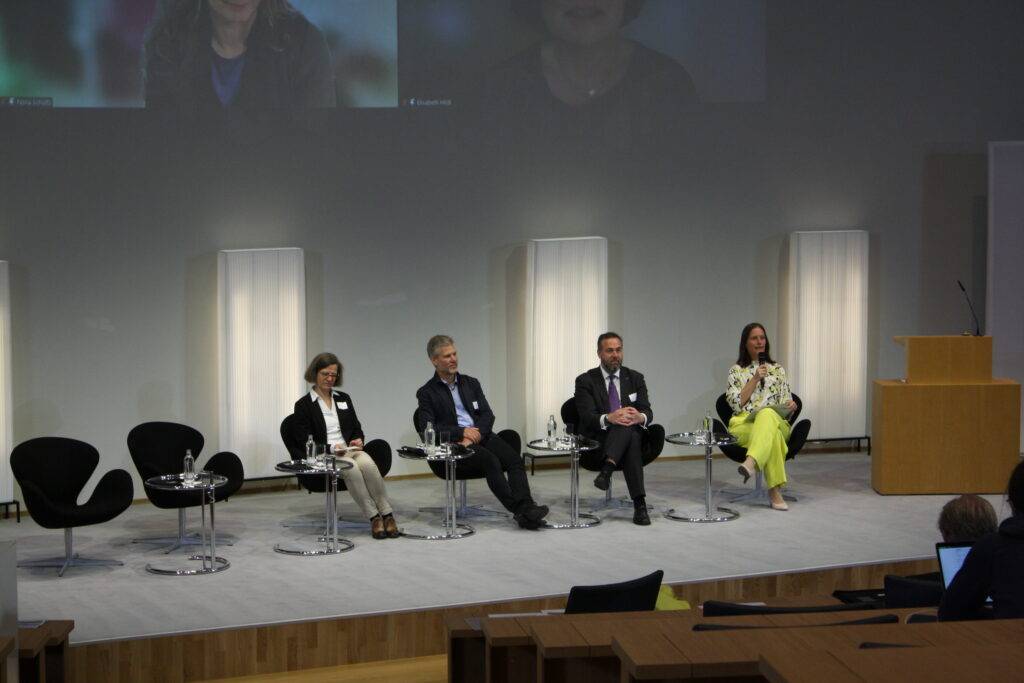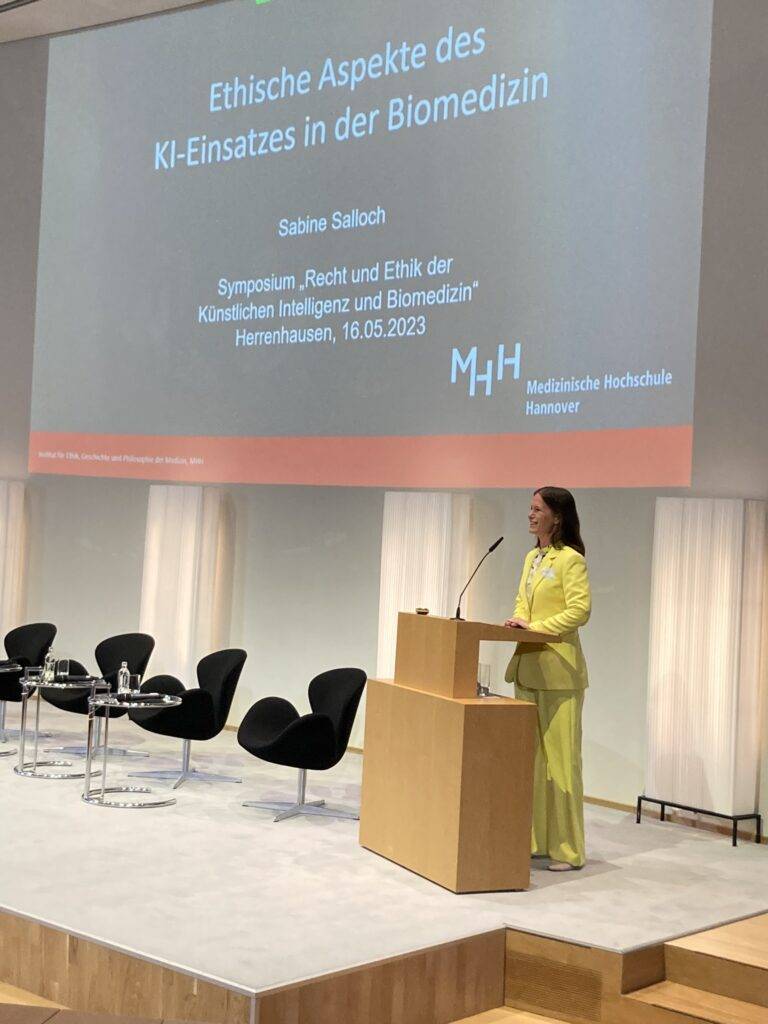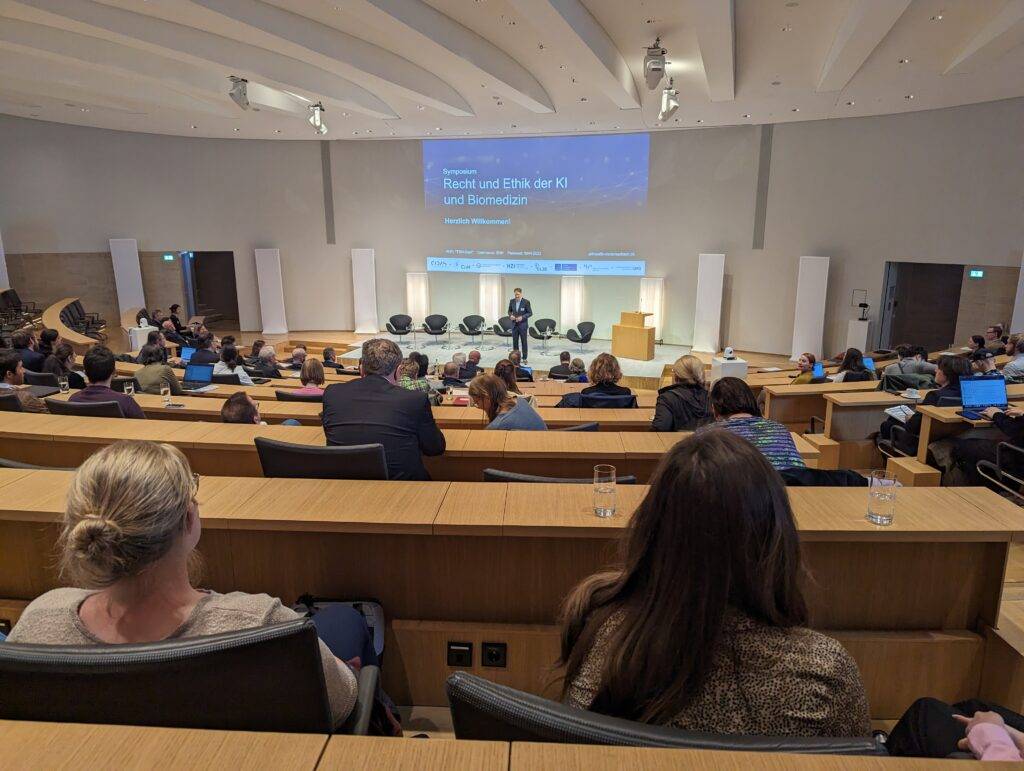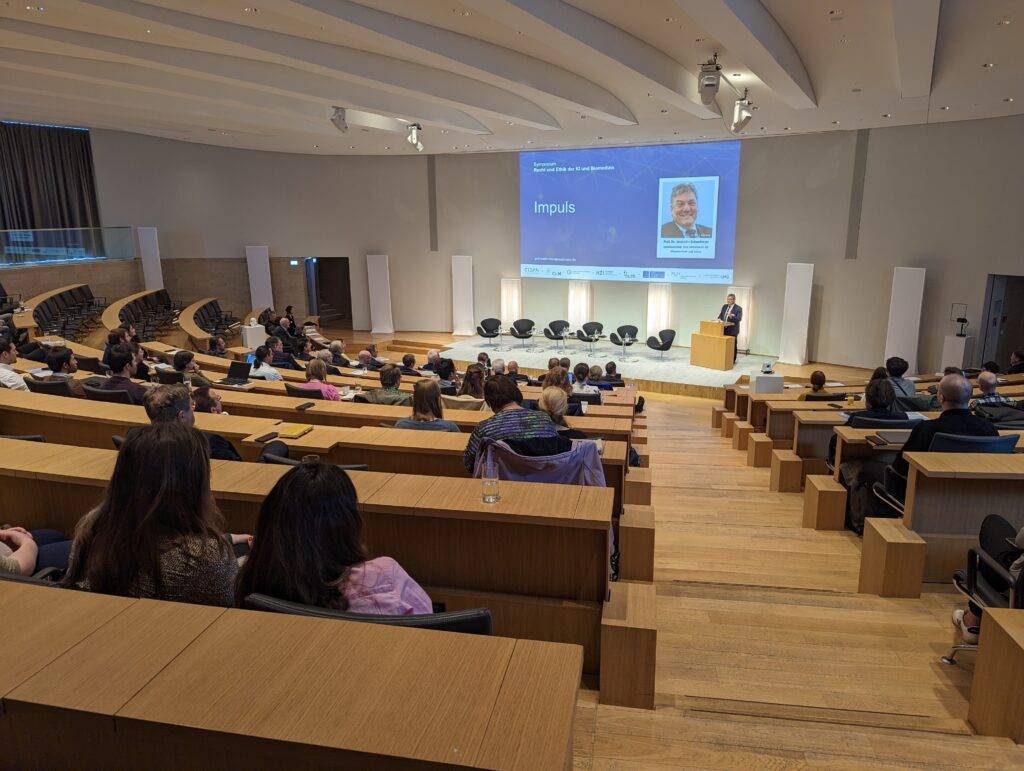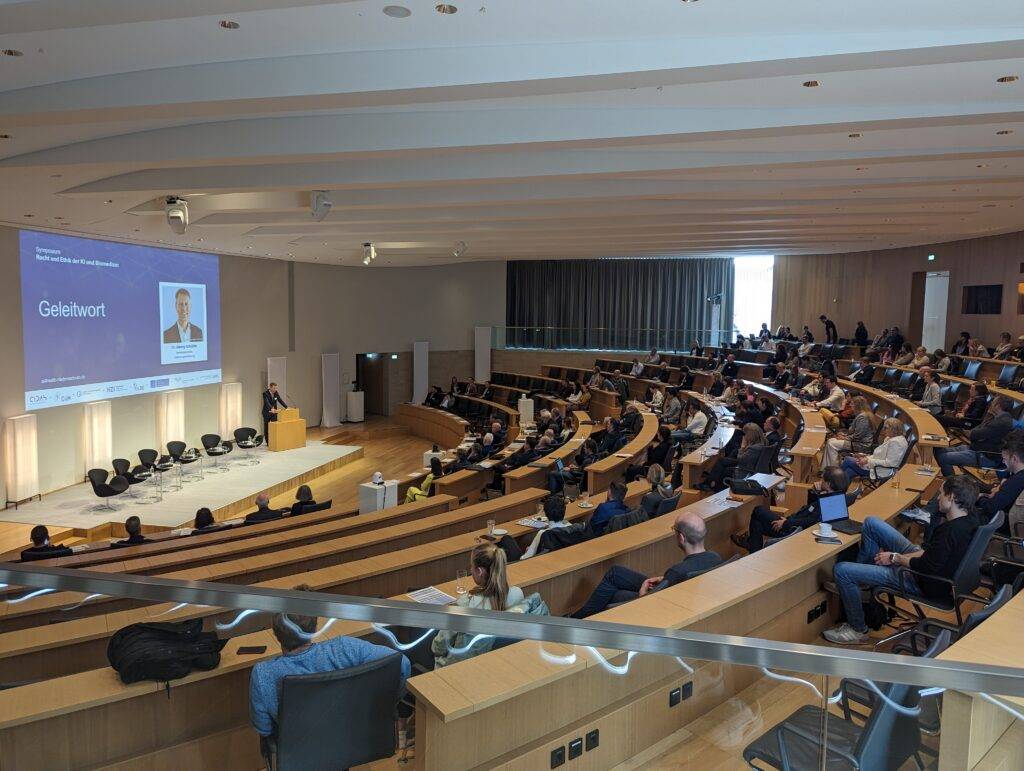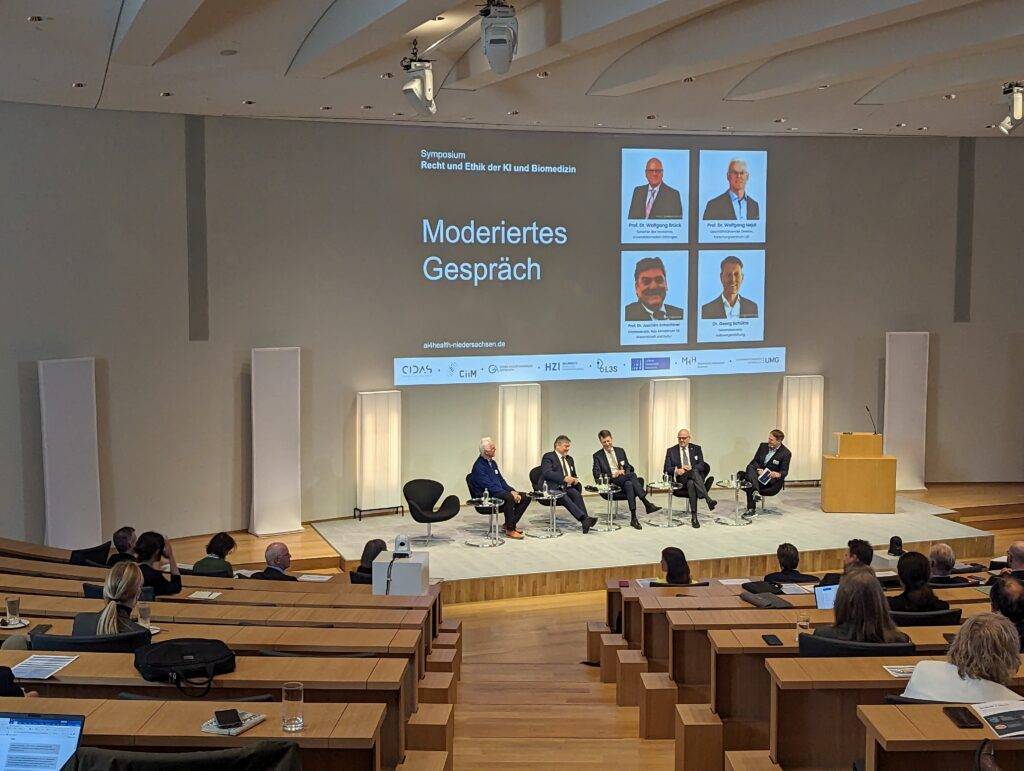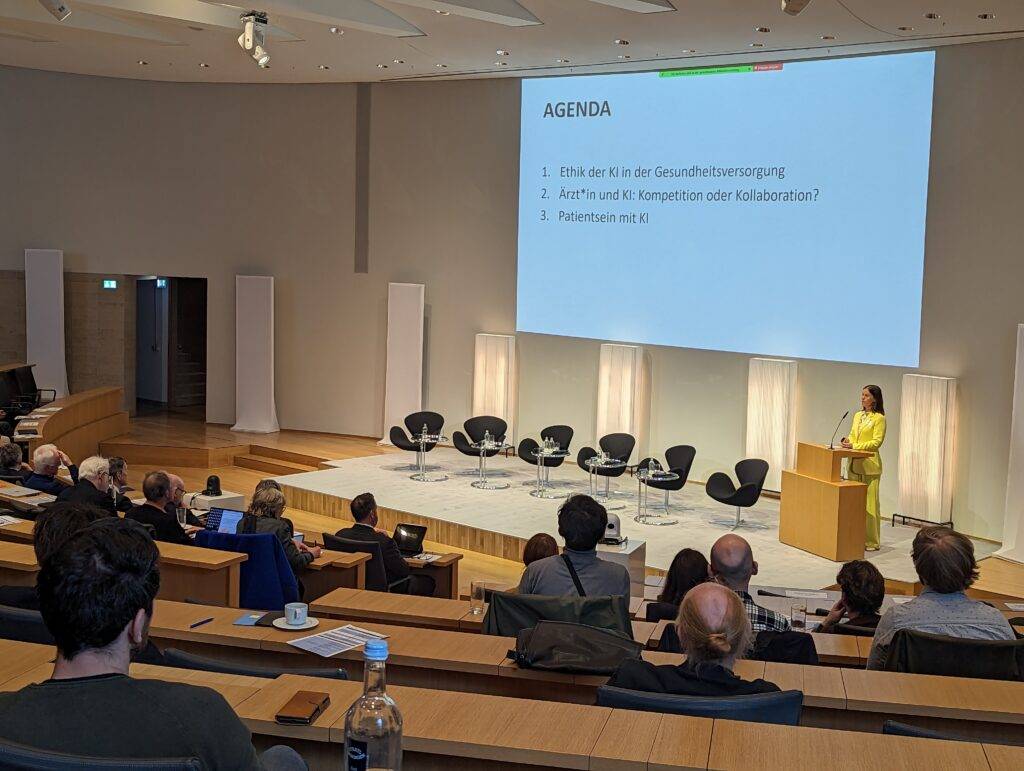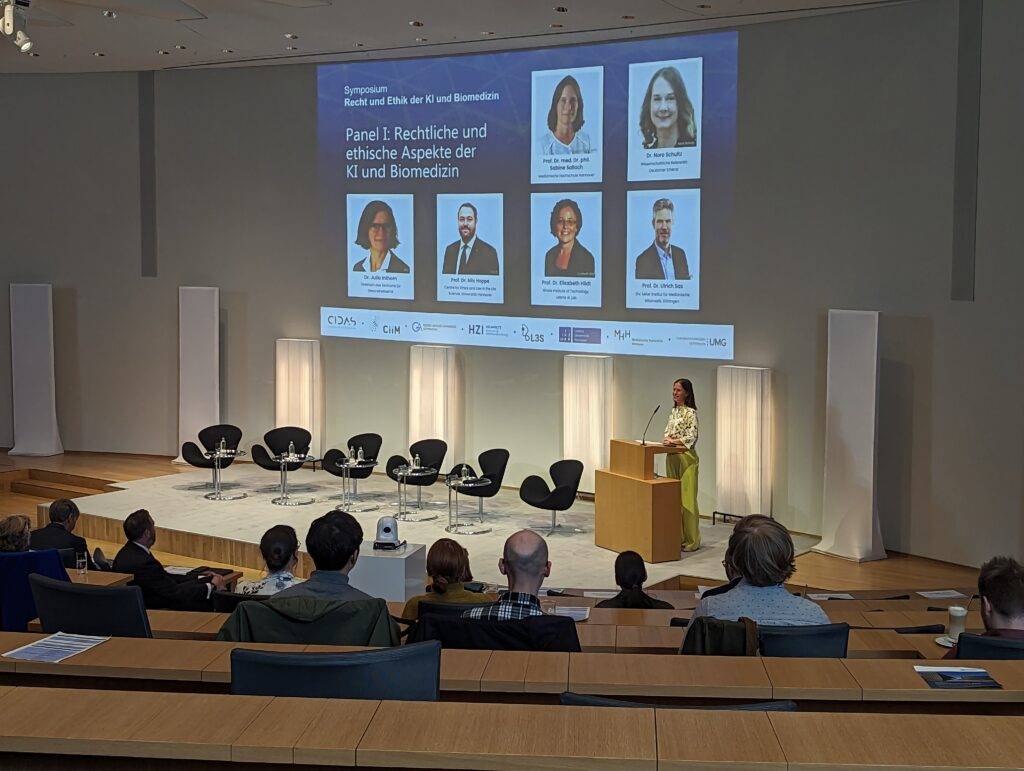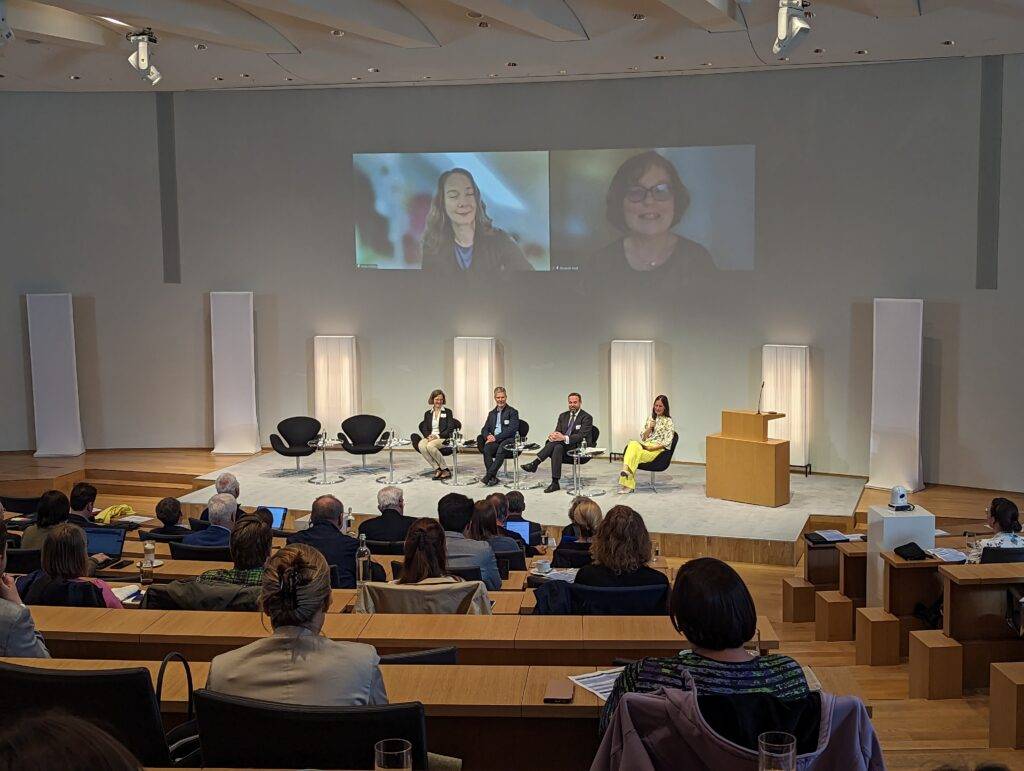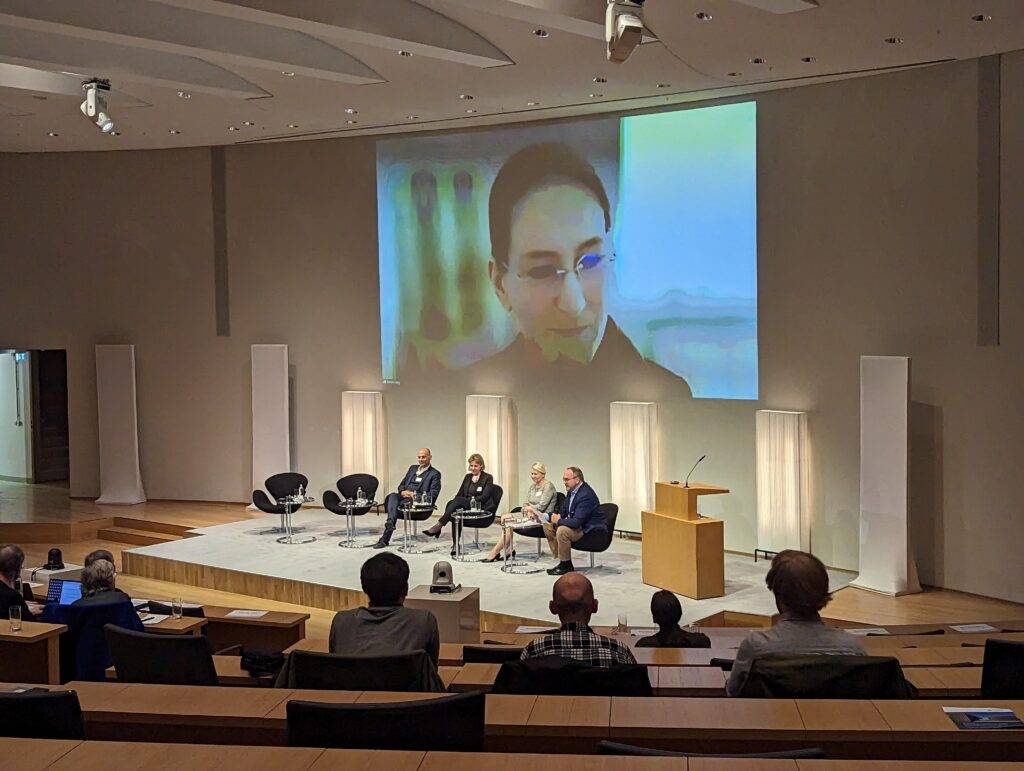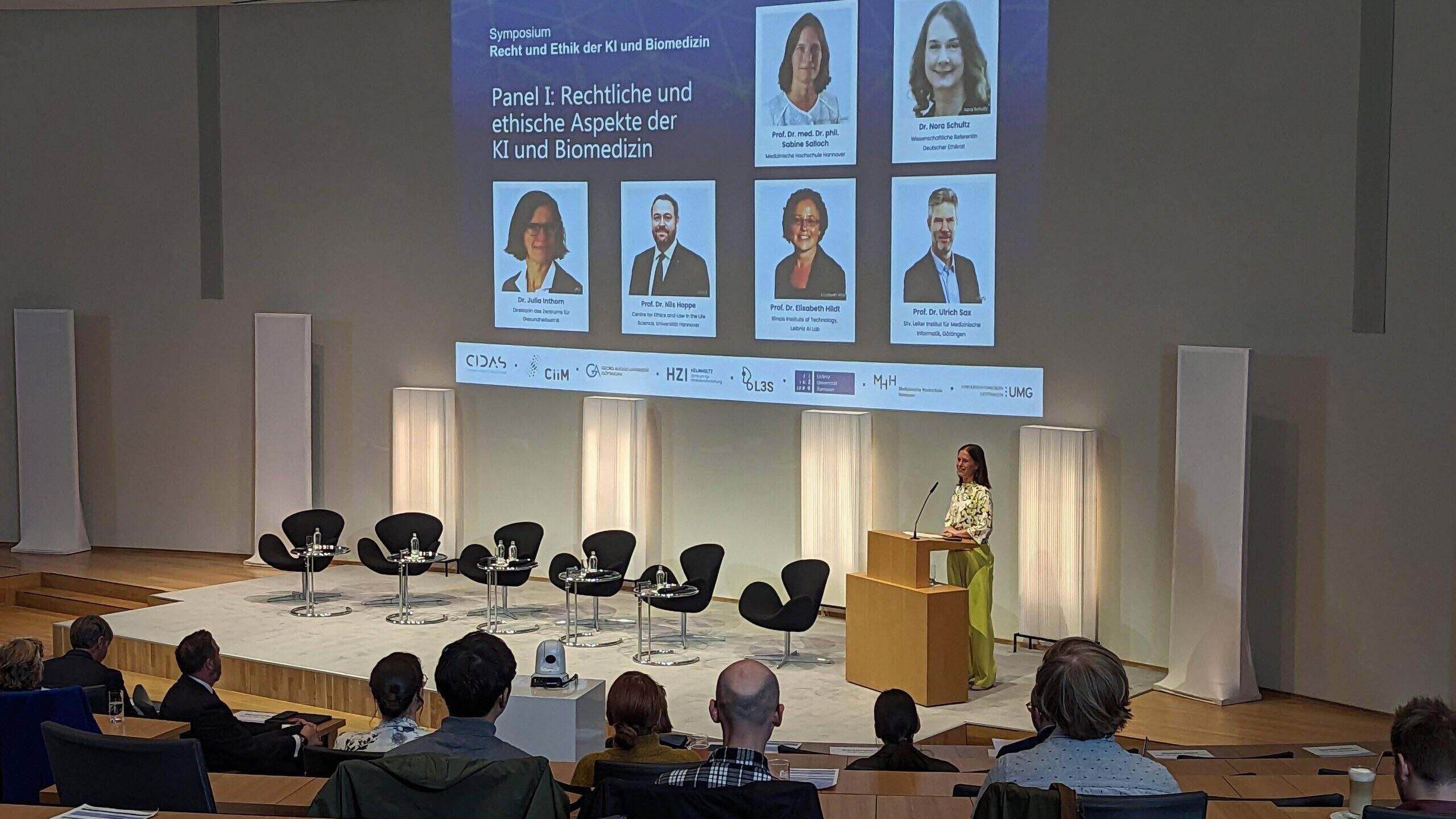Leading experts from medicine, computer science, the humanities, health economics and politics exchanged views at the symposium “Law and Ethics of AI and Biomedicine” at Herrenhausen Palace on 16 May 2023. The focus of the debate: how can health technologies increase the quality of care without impairing the self-development of humans? Is there a right to medical treatment with AI? And what framework conditions do we need for the use of AI in medicine?
In panels and keynotes, experts from various scientific disciplines and medical application areas highlighted challenges, but also approaches to solutions and social design options on this topic.
“Artificial intelligence has enormous potential for the transformation of the health system, if only in view of demographic change, but at the same time, freedom for innovation must go hand in hand with legal regulations. From the perspective of innovation and research promotion, we should create structures and promote minds that courageously lead an ambitious dialogue between the disciplines. Top research will be the research that makes humanities expertise loud and creates precisely adjusted transdisciplinarity,” said Dr. Georg Schütte, Secretary General of the Volkswagen Foundation, in the opening discussion round. With the “zukunft.niedersachsen” programme, the state of Lower Saxony is investing massively in the expansion of the science location in the areas of transformation, digitality and cutting-edge research, said Prof. Joachim Schachtner, State Secretary in the Lower Saxony Ministry of Science and Culture. The stronger linking of medicine and informatics is important for the health care of tomorrow. Prof. Wolfgang Brück, Spokesman of the Executive Board of the University Medical Center Göttingen, pointed out that university hospitals play a central role in the development and validation of AI systems in medicine. In order to enable data protection and at the same time provide AI researchers and start-ups with access to data, privacy-enhancing technologies are a promising approach, explained Prof. Dr. Wolfgang Nejdl, Executive Director of the L3S Research Centre, one of the co-hosts of the symposium alongside Wolfgang Brück.
In her keynote, Prof. Sabine Salloch, head of the Institute for Ethics, History and Philosophy of Medicine at the Hannover Medical School, emphasised that a competitive image of the human-technology relationship in medical AI could be harmful. Technology must support and relieve humans, she said, and for that trustworthy, supportive AI systems are needed. This is all the more important because in many areas of health care it will not be possible to provide “non-AI alternatives” in the long term.
170 guests from the fields of medicine, law, ethics, informatics, health economy, politics and the interested public took part in the event on site and digitally. The symposium was organised by a consortium of Leibniz Universität Hannover / L3S Research Centre, Hannover Medical School, Helmholtz Centre for Infection Research Braunschweig / Center for Individualised Infection Medicine (CiiM), Georg-August-Universität Göttingen / Campus Institute Data Science (CIDAS) and University Medical Center Göttingen, funded by the Lower Saxony Ministry of Science and Culture with funds from the Volkswagen Foundation’s zukunft.niedersachsen programme.
